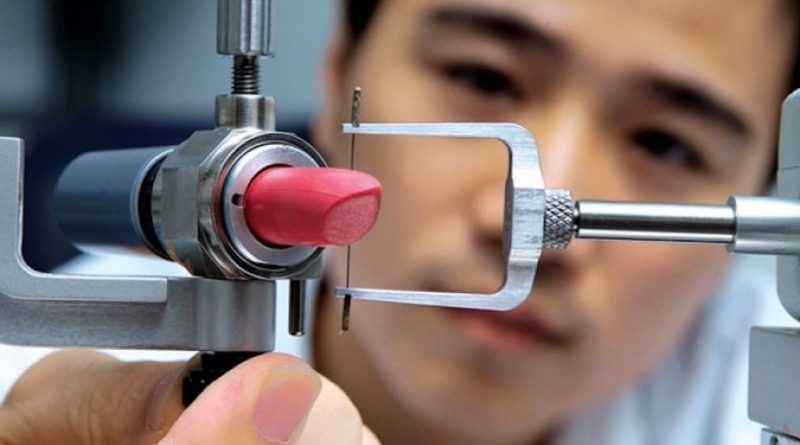
By
A study led by researchers at UC Berkeley and Clinica de Salud del Valle Salinas has demonstrated how taking even a short break from various cosmetics, shampoos, and other personal care products can lead to a substantial drop in the levels of hormone-disrupting chemicals present within the body.
The results from the study were published in the journal Environmental Health Perspectives. Researchers gave 100 Latina teenagers various personal care products that were labeled to be free of common chemicals including phthalates, parabens, triclosan, and oxybenzone. These chemicals are used regularly in almost all conventional personal care products such as cosmetics, soap, sunscreen, shampoo, conditioner, and other hair products, and animal studies have shown that they directly interfere with the body’s endocrine system.
“Because women are the primary consumers of many personal care products, they may be disproportionately exposed to these chemicals,” said study lead author Kim Harley, associate director of the UC Berkeley Center for Environmental Research and Children’s Health. “Teen girls may be at particular risk since it’s a time of rapid reproductive development, and research has suggested that they use more personal care products per day than the average adult woman.”
Results
After just a three-day trial with the girls using only the lower-chemical products, urine samples showed a significant drop in the level of chemicals in the body. Methyl and propyl parabens, commonly used as preservatives in cosmetics, dropped 44% and 45%, respectively, metabolites of diethyl phthalate, used often in perfumes, dropped by 27%, and both triclosan and benzophenone-3 fell 36%. The authors of the study were surprised to see an increase in two lesser common parabens, but, being minor, could easily have been caused by accidental contamination or a substitute not listed on the labels.
Co-director of the study Kimberly Parra explains why having local youths participate in the study was of particular importance:
The results of the study are particularly interesting on a scientific level, but the fact that high school students led the study set a new path to engaging youth to learn about science and how it can be used to improve the health of their communities. After learning of the results, the youth took it upon themselves to educate friends and community members, and presented their cause to legislatures in Sacramento.
Included in the CHAMACOS Youth Council were 12 local high school students who helped design and implement the study. One of the teen researchers, Maritza Cárdenas, is now a UC Berkeley undergraduate majoring in molecular and cell biology.
“One of the goals of our study was to create awareness among the participants of the chemicals found in everyday products, to help make people more conscious about what they’re using,” said Cárdenas. “Seeing the drop in chemical levels after just three days shows that simple actions can be taken, such as choosing products with fewer chemicals, and make a difference.”
The researchers noted that cosmetics and personal care products are not well-regulated in this country, and that getting data about health effects from exposure, particularly long-term ones, is difficult. But they say there is growing evidence linking endocrine-disrupting chemicals to neurobehavioral problems, obesity and cancer cell growth.
What Can You Do?
Well, you can be sure to check the labels on any products you purchase. Most personal care products contain a list of ingredients, but unfortunately many cosmetics do not. If you use a particular brand that you really love you can try contacting the manufacturer directly and asking them for an ingredient list.
You can also opt for more natural and organic products, but be sure to keep in mind that in the industry of personal care products, the words “natural” and “organic” are often meaningless. A safe bet would be to buy these products from a health food store and be sure to read the ingredients or ask the sales clerk. Generally, when products do not contain specific chemicals, the manufacturers are happy to label them as such.
The less demand for these chemically-laden products there is, the less these chemicals will be used. I’ve said it before and I’ll say it again: VOTE WITH YOUR DOLLAR! We have the power to create the type of world we want. Be the change.
Check out The Story Of Cosmetics below!
Source: Collective Evolution.
Disclaimer: We at Prepare for Change (PFC) bring you information that is not offered by the mainstream news, and therefore may seem controversial. The opinions, views, statements, and/or information we present are not necessarily promoted, endorsed, espoused, or agreed to by Prepare for Change, its leadership Council, members, those who work with PFC, or those who read its content. However, they are hopefully provocative. Please use discernment! Use logical thinking, your own intuition and your own connection with Source, Spirit and Natural Laws to help you determine what is true and what is not. By sharing information and seeding dialogue, it is our goal to raise consciousness and awareness of higher truths to free us from enslavement of the matrix in this material realm.
 EN
EN FR
FR


























We should also include here, similar pollutants being used in detergents, softening agents and other clothes washing concoctions. The detergent smell sometimes fro washing powder is sickening!
Today glamour is one of the more dangerous traps for women, and some men. Magazines, romance books, etc. and we need to learn to be aware of how we are being programmed to buy, buy, buy, without even reading the ingredients or taking the time to educate ourselves. Companies spend far, far, far less for what is in the product than the advertising to get the public to buy the product.
Do not forget the dangers of sprays – hair sprays, odor sprays, etc. Everything we spray ends up in our lungs. Add to that the danger of masks that only concentrate toxins and force us to breathe them and we end up wondering why we are not healthy. How sad too that far too many actually believe that the doctor can give them a magic pill to make up for poor choices. Corruption will continue until we learn to exercise more responsible ‘purchasing power’.